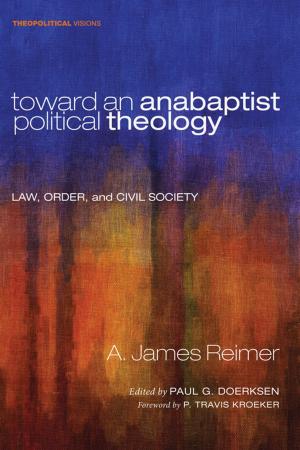Constantine Revisited
Leithart, Yoder, and the Constantinian Debate
Nonfiction, Religion & Spirituality| Author: | ISBN: | 9781621897545 | |
| Publisher: | Wipf and Stock Publishers | Publication: | June 27, 2013 |
| Imprint: | Pickwick Publications | Language: | English |
| Author: | |
| ISBN: | 9781621897545 |
| Publisher: | Wipf and Stock Publishers |
| Publication: | June 27, 2013 |
| Imprint: | Pickwick Publications |
| Language: | English |
This collection of essays continues a long and venerable debate in the history of the Christian church regarding the legacy of the Roman emperor Constantine the Great. For some, Constantine's conversion to Christianity early in the fourth century set in motion a process that made the church subservient to the civil authority of the state, brought a definitive end to pacifism as a central teaching of the early church, and redefined the character of Christian catechesis and missions. In 2010, Peter J. Leithart published a widely read polemic, Defending Constantine, that vigorously refuted this interpretation. In its place, Leithart offered a thoroughgoing rehabilitation of Constantine and his legacy, while directing a rhetorical fusillade against the pacifist theology and ethics of the Mennonite theologian John Howard Yoder. The essays gathered here in response to Leithart reflect the insights of eleven leading theologians, historians, and ethicists from a wide range of theological traditions. They engage one of the most contentious issues in Christian church history in irenic fashion and at the highest level of scholarship. In so doing, they help ensure that the Constantinian Debate will continue to be lively, substantive, and consequential.
This collection of essays continues a long and venerable debate in the history of the Christian church regarding the legacy of the Roman emperor Constantine the Great. For some, Constantine's conversion to Christianity early in the fourth century set in motion a process that made the church subservient to the civil authority of the state, brought a definitive end to pacifism as a central teaching of the early church, and redefined the character of Christian catechesis and missions. In 2010, Peter J. Leithart published a widely read polemic, Defending Constantine, that vigorously refuted this interpretation. In its place, Leithart offered a thoroughgoing rehabilitation of Constantine and his legacy, while directing a rhetorical fusillade against the pacifist theology and ethics of the Mennonite theologian John Howard Yoder. The essays gathered here in response to Leithart reflect the insights of eleven leading theologians, historians, and ethicists from a wide range of theological traditions. They engage one of the most contentious issues in Christian church history in irenic fashion and at the highest level of scholarship. In so doing, they help ensure that the Constantinian Debate will continue to be lively, substantive, and consequential.















